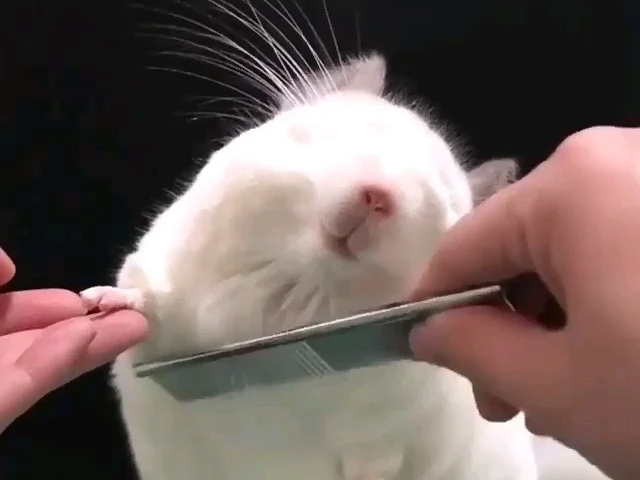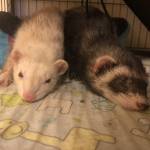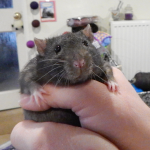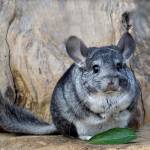As a chinchilla owner, you may wonder how these furry little creatures keep themselves clean and healthy. Unlike dogs and cats, chinchillas are unable to bathe themselves in water due to their dense fur, so you may be left wondering, do chinchillas groom themselves? In this article, we will explore the world of chinchilla hygiene, discussing whether or not chinchillas groom themselves and how they maintain their cleanliness.
Understanding Chinchilla Fur
To understand chinchilla hygiene, it’s important to first understand their fur. Chinchillas have a dense coat of fur that is designed to keep them warm and protect them from the cold temperatures of their natural habitat in the Andes Mountains. Unlike other animals, chinchilla fur is so dense that it can’t get wet, which is why chinchillas are unable to bathe in water. Instead, they have adapted to use a different method to keep themselves clean.
Do Chinchillas Groom Themselves?
Yes, chinchillas do groom themselves. In fact, self-grooming is an essential part of a chinchilla’s daily routine. Chinchillas use their teeth to nibble on their fur and remove dirt and debris. They also use their paws to groom their face and ears. Chinchillas are also able to produce oil from their skin that helps keep their fur soft and shiny.
The Importance of Self-Grooming for Chinchillas
Self-grooming is crucial for the health and well-being of chinchillas. Without regular grooming, chinchillas can develop skin irritations, infections, and other health problems. Grooming helps remove dirt, debris, and loose fur from their coat, which can prevent matting and tangling. It also helps distribute their natural oils throughout their fur, which can help keep it healthy and shiny.
How to Encourage Grooming in Chinchillas
While chinchillas naturally groom themselves, there are a few things you can do as an owner to encourage and promote good grooming habits:
- Provide a dust bath: As previously mentioned, chinchillas can’t bathe in water. Instead, they take dust baths to remove dirt and debris from their fur. Provide a shallow dish filled with chinchilla dust and let your chinchilla roll around in it.
- Offer a healthy diet: A healthy diet can help promote good fur health and encourage natural grooming habits. Offer your chinchilla a diet of hay, pellets, and occasional treats to keep them healthy and happy.
- Provide toys and mental stimulation: Chinchillas that are bored or stressed may neglect their grooming habits. Providing plenty of toys and mental stimulation can help keep your chinchilla happy and engaged, which can in turn promote good grooming habits.
Do I Need to Help My Chinchilla Groom?
In most cases, chinchillas are capable of grooming themselves and do not need any help from their owners. However, there are a few instances when you may need to assist with grooming:
- Senior Chinchillas: Older chinchillas may have difficulty reaching certain areas of their body to groom properly. If you notice any clumping or matting of fur, you may need to help your senior chinchilla groom those areas.
- Long-Haired Chinchillas: Chinchillas with long fur, such as the Angora variety, may require some assistance in grooming to prevent matting and tangling of their fur. You can gently comb their fur to keep it smooth and untangled.
- Health Issues: If your chinchilla is sick or injured, they may not be able to groom themselves properly. In this case, you may need to assist with grooming to prevent any fur or skin issues.
When assisting with grooming, it’s important to be gentle and use the right tools. Use a soft-bristled brush or comb to gently work through any tangles or mats. Avoid pulling or tugging on the fur, as this can be painful for your chinchilla.
If you’re unsure whether your chinchilla needs help with grooming, it’s always a good idea to consult with a veterinarian or an experienced chinchilla owner. They can provide guidance on proper grooming techniques and help you identify any potential issues with your chinchilla’s fur or skin.
When to Seek Veterinary Care
If you notice that your chinchilla has stopped grooming themselves, it may be a sign of a health problem. Additionally, if you notice any changes in your chinchilla’s fur, such as bald patches or skin irritations, it’s important to seek veterinary care. A veterinarian can help diagnose and treat any underlying health problems and help ensure that your chinchilla stays healthy and happy.
In conclusion, chinchillas do groom themselves, and self-grooming is an essential part of their daily routine. By providing a healthy diet, a dust bath, and plenty of toys and mental stimulation, you can encourage good grooming habits in your chinchilla. However, it’s important to be aware of any changes in your chinchilla’s grooming habits or fur and seek veterinary care if necessary. With proper care and attention, your chinchilla can lead a happy and healthy life.







